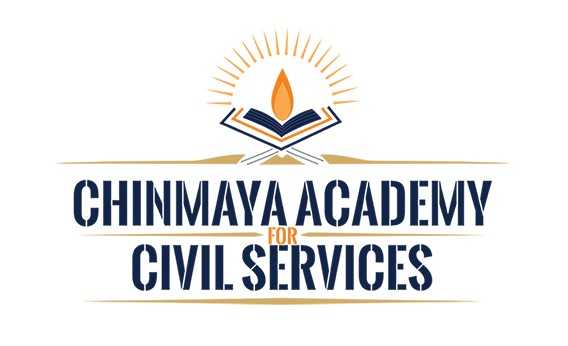The UPSC Civil Services Examination is a multi-stage exam that includes the Prelims, Mains, and Interview. When preparing for this exam, candidates must choose an optional subject, which plays a crucial role in determining their final ranking. In recent years, the success rate of literature-based subjects has been rising.
In the 2017 UPSC Mains exam, 39 candidates chose Punjabi as their optional subject. Punjabi is a widely spoken Indo-Aryan language in Punjab and several other northern regions in India. It is recognized as one of the official languages of India and is written using both the Gurumukhi and Shahmukhi scripts.
Punjabi literature is a popular optional subject for the UPSC Civil Services Mains exam, and the syllabus includes topics such as the history of the language and its literature, major literary traditions, dialects, and the development of the Gurumukhi script. It also requires a critical evaluation of the works of well-known Punjabi authors. The Punjabi optional is comprised of two papers, each worth 250 marks.
In order to prepare effectively for the Punjabi literature section of the exam, it is important to familiarize oneself with the syllabus and follow the recommended books. The linked article comprehensively lists the UPSC Punjabi literature syllabus and recommended books.
PUNJABI
PAPER-I
Answers must be written in Punjabi in Gurumukhi script
Section A
(a) Origin of Punjabi Language; different stages of development and recent development in Punjabi Language; characteristics of Punjabi phonology and the study of its tones; classification of vowels and consonants.
(b) Punjabi morphology; the number-gender system (animate and inanimate), prefixes, affixes and different categories of Post positions; Punjabi word formation; Tatsam. Tad Bhav. forms; Sentence structure, the notion of subject and object in Punjabi; Noun and verb phrases.
(c) Language and dialect : the notions of dialect and idiolect:major dialects of Punjabi : Pothohari, Majhi, Doabi, Malwai, Paudhi; the validity of speech variation on the basis of social stratification, the distinctive features of various dialects with special reference to tones Language and script; origin and development of Gurumukhi; Suitability of Gurumukhi for Punjabi.
(d) Classical background : Nath Jogi Sahit. Medieval Literature : Gurmat, Suti, Kissa and Var : janamsakhis.
Section B
(a) Modern trends Mystic, romantic, progressive and neomystic (Vir Singh, Puran Singh, Mohan Singh, Amrita Pritam, Bawa Balwant, Pritam Singh Safeer, J. S. Neki).
Experimentalist (Jasbir Singh Ahluwalia, Ravinder Ravi, Ajaib Kamal).
Aesthetes (Harbhajan Singh, Tara Singh).
Neo-progressive (Pash, Jagtar, Patar).
(b) Folk Literature Folk songs, Folk tales, Riddles, Proverbs.
Epic (Vir Singh, Avtar Singh Azad, Mohan Singh).
Lyric (Gurus, Sufis and Modern
Lyricists-Mohan Singh, AmritaPritam, Shiv Kumar, Harbhajan Singh).
(c) Drama (I.C. Nanda, Harcharan Singh, Balwant Gargi, S.S. Sekhon, Charan Das Sidhu).
Novel (Vir Singh, Nanak Singh, Jaswant Singh Kanwal, K.S. Duggal,Sukhbir, Gurdial Singh, Dalip KaurTiwana, Swaran Chandan).
Short Story (Sujan Singh, K. S. Virk, Prem Parkash, Waryam Sandhu).
(d) Socio-cultural Sanskrit, Persian and Western.
Literary influences; Essay (Puran Singh, Teja Singh, Gurbaksh Singh).
Literary Criticism (S.S. Sekhon, Attar Singh, Kishan Singh, Harbhajan Singh, Najam
Hussain Sayyad).
PAPER-II
Answers must be written in Punjabi in Gurumukhi script
This paper will require first-hand reading of the texts prescribed and will be designed to test the candidate’s critical ability.
Section A
(a) Sheikh Farid -The complete Bani as included in the Adi Granth.
(b) Guru Nanak – Japu Ji. Baramah. Asa di Var.
(c) Bulleh Shah – Kafian
(d) Waris Shah – Heer
Section B
(a) Shah Mohammad Jangnama (Jang Singhan te Firangian)
Dhani Ram Chatrik Chandan Vari
(Poet) Sufi Khana ,Nawan Jahan
(b) Nanak Singh Chitta Lahu
(Novelist) Pavittar Papi,Ek Mian Do Talwaran
(c) Gurbaksh Singh Zindagi-di-Ras
(Essayist) Nawan Shivala, Merian Abhul Yadaan.
Balraj Sahni Mera Roosi Safarnama
(Travelogue) Mera Pakistani Safarnama
(d) Balwant Gargi Loha Kutt
(Dramatist) Dhuni-di-Agg,Sultan Razia,Sant Singh Sekhon Sahityarth
(Critic) Parsidh Punjabi Kavi
Punjabi Kav Shiromani.


